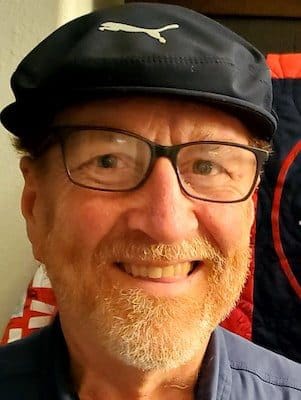I bragged on the response that Houstonians had made shortly after Hurricane Harvey and made an appeal for churches to consider making Houston a destination for mission work in helping us rebuild.
I was driving down a local street a few weeks ago and saw a van from my hometown church. They have been very involved for months and continue to show interest in our city. That impresses me.
My home church has become a center for churches that have come to Houston to help the city rebuild.
There is a map in the lobby that shows locations from which churches have travelled to our church to help.
Those states include the Dakotas, New York, Georgia, Wisconsin and California as well as nearby neighbors like Louisiana and Missouri.
My favorite state has become Missouri. The “show me” state has shown up in huge ways. Many Mennonite churches have come to help.
More than that, they have promised to keep coming until every house, every business and every church is rebuilt.
There is something awe inspiring in observing women in long dresses and bonnets on roofs nailing down shingles. They stayed in New Orleans for 10 years after Katrina and plan on doing the same if needed in Houston.
Last week, a group came from Colorado. In that group was Phillip Yancey’s wife. I don’t know why, but the thought of her swinging a hammer makes me smile.
While I grew up in Baptist churches, I now attend a Methodist church.
I have great admiration for EthicsDaily.com’s new executive director, Mitch Randall.
When I offered my resignation from the board of directors because I am no longer Baptist, he replied that the organization must become more ecumenical if we are to survive.
In seminary, I was as Baptist as Baptist as one could be. I took the secret oath while in seminary: “We don’t dance and we don’t chew, and we don’t go with girls who do.”
I still embrace Baptist hallmarks, such as separation of church and state and priesthood of believers.
It was in seminary that I met missionaries who had just come home from Africa and South America.
They were distraught to come home to the United States. They told me that the mission field was nothing like Christendom.
They came home to a denomination divided by political movements, distrust and outright anger and hate.
They told me of a world where missionaries were known by the name “Christian” and not by a denominational affiliation.
Robert Parham, EthicsDaily.com’s late founder and longtime executive director, grew up on the mission field and told me the same story.
I asked him once if there was ever a hope for a unified Christian movement in the U.S. He bemoaned that we were too bent on ideologies and not nearly enough on a unified purpose.
In Randall’s interview process, he spoke of the need to engage all good will Christians in the hands-on work of ministry.
He spoke of the necessity of this approach, especially in engaging millennials. I am no millennial, but the vision is inspiring.
I’ve seen a similar picture in Houston post-Harvey: a Christian community united by the single purpose of rebuilding a community and showing the love of Christ through hard work and sweat equity.
The followers of the ultimate carpenter have become carpenters themselves. They found that wearing the yoke of Christ is easy and burdens are light when you are united in a common cause.
I am grateful to be a part of a church that has become an epicenter of community renovation and of a progressive ecumenical movement. I am also grateful that I don’t feel the need to be apologetic about that.
Ed Hogan is a public high school teacher in Houston. He is an ordained Baptist minister and a Baptist Center for Ethics board member.

